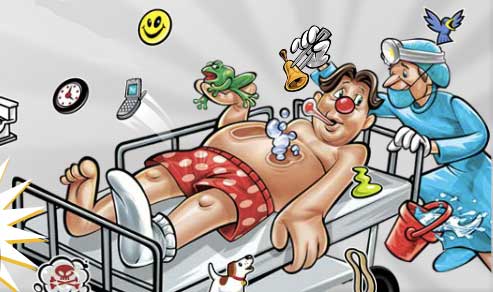If you can afford insurance but do not get it, you will be charged a fee. This is the “mandate” that people are talking about. Basically, it’s a trade-off for the “pre-existing conditions” bit, saying that since insurers now have to cover you regardless of what you have, you can’t just wait to buy insurance until you get sick. Otherwise no one would buy insurance until they needed it. You can opt not to get insurance, but you’ll have to pay the fee instead, unless of course you’re not buying insurance because you just can’t afford it.
*Note: On 6/28/12, the Supreme Court ruled that this is Constitutional.
More details from Kaiser Health News:
Q: I don’t have health insurance. Will I have to get it, and what happens if I don’t?
A: Under the legislation, most Americans will have to have insurance by 2014 or pay a penalty. The penalty would start at $95, or up to 1 percent of income, whichever is greater, and rise to $695, or 2.5 percent of income, by 2016. This is the individual limit; families have a limit of $2,085 or 2.5 percent of household income, whichever is greater. Some people can be exempted from the insurance requirement, called an individual mandate, because of financial hardship or religious beliefs or if they are American Indians, for example.
Q: I want health insurance, but I can’t afford it. What do I do?
A: Depending on your income, you might be eligible for Medicaid, the state-federal program for the poor and disabled, which will be expanded sharply beginning in 2014. Low-income adults, including those without children, will be eligible, as long as their incomes didn’t exceed 133 percent of the federal poverty level, or $14,404 for individuals and $29,326 for a family of four, according to current poverty guidelines.
Q: What if I make too much for Medicaid but still can’t afford coverage?
A: You might be eligible for government subsidies to help you pay for private insurance that would be sold in the new state-based insurance marketplaces, called exchanges, slated to begin operation in 2014.
Premium subsidies will be available for individuals and families with incomes between 133 percent and 400 percent of the poverty level, or $14,404 to $43,320 for individuals and $29,326 to $88,200 for a family of four.
The subsidies will be on a sliding scale. For example, a family of four earning 150 percent of the poverty level, or $33,075 a year, will have to pay 4 percent of its income, or $1,323, on premiums. A family with income of 400 percent of the poverty level will have to pay 9.5 percent, or $8,379.
In addition, if your income is below 400 percent of the poverty level, your out-of-pocket health expenses will be limited.
More from this series:

Leave a comment